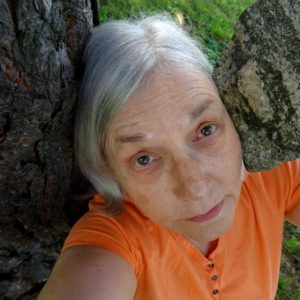 Did he really say those words? Did he use that cliché many times, five at least, as we sat knee to knee?
Did he really say those words? Did he use that cliché many times, five at least, as we sat knee to knee?
“You’re between a rock and a hard place.”
I’ve traveled to this hearing center for 30 years. A two hour drive, a walk up wide stairs, a well-lit room often filled with little kids and old people with hearing aids, but nearly empty for today’s late afternoon appointment. A little girl signs with her mother, obviously bickering
“Is your information the same?” the woman behind the desk asks. I nod.
“Have a seat. Dr. Orlando will be right with you.”
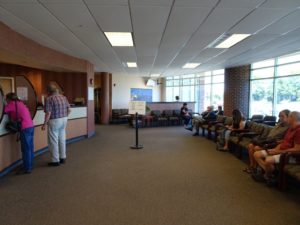 Dr. Orlando is Director of Research at Strong Audiology in Rochester. He ought to know how to help me, right? But each time I show up with my begging bowl, he has less to give. Same is true wherever I search. Meniere’s Disease is busy destroying my inner ear and no one knows how to stop it.
Dr. Orlando is Director of Research at Strong Audiology in Rochester. He ought to know how to help me, right? But each time I show up with my begging bowl, he has less to give. Same is true wherever I search. Meniere’s Disease is busy destroying my inner ear and no one knows how to stop it.
The doctor enters the waiting room with his student Mai and smiles. I follow them into an acoustically perfect room and take a chair.
“Let’s start with a hearing test,” he says, but I’m overflowing with fear and hopelessness that won’t be stuffed. My feelings insist on being first.
“I’ve lost all hearing in my left ear and developed an echo and more distortion in the right ear. I’m afraid that ear is going, too. I’m scared. I don’t want to be a hermit. I need help.”
Dr. Orlando nods. He glances down at his folded hands while I speak and drip, his shoulders hunched with the weight of my grief. If it wasn’t unprofessional, I think he’d hug me as I wipe tears with my sleeve. Instead he hands me a Kleenex. Mai picks up the box and holds it on her lap, assisting like an altar boy with the priest.
“We have to do the hearing test to know if we can help,” he says after listening carefully. Mai tenderly places headphones over my ears and follows him out the door. In seconds, they show up through the window to the adjoining room filled with testing equipment. I listen for beeps and words, hoping it isn’t as bad as I think.
“Your left ear has no word recognition and little sound recognition at any pitch. A hearing aid won’t help it now. Your right ear is only a little worse than last year in terms of sound and word recognition. You do well with word recognition in perfect conditions.” (Life rarely offers perfect hearing conditions.)
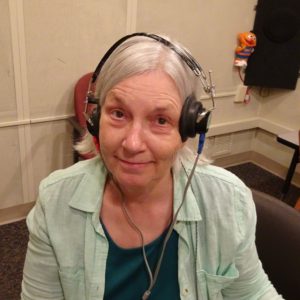 “But the echo,” I say. My voice begs as I try to be adult about this. Sometimes infants are born deaf. This is life. Grow up. Tears squirm down my cheeks.
“But the echo,” I say. My voice begs as I try to be adult about this. Sometimes infants are born deaf. This is life. Grow up. Tears squirm down my cheeks.
“Medicare and Excellus won’t pay for a cochlear implant with one-sided deafness,” he says. “You could pay for it, but it’s expensive and I don’t think it will help much. Meniere’s distortion and dizziness usually continue. I’m sorry. ‘You’re between a rock and a hard place.’”
“How about a new hearing aid in the right ear?” I ask.
“I don’t think it will help, but we can try. It won’t stop distortion but might make words a little crisper. There’s a 45 day warranty, so if it fails, you’ll get your $3000 back.”
I make an appointment for his next opening. Later, I’ll text my sons to ask if they can help me switch from my Android to the iPhone needed for the latest hearing aid technology.
I keep my feelings jailed until I get to the car and close door. Then I sob, not because I don’t expect suffering in life or because I feel singled out or persecuted, but because I want to call Vic.
After every audiology appointment before 2008, I called Vic from the parking lot to share the news. My hearing held steady for years, so our calls were small celebrations. Today, I’m crushed. As I cry, I remember Pema Chodron’s “Tonglen on the Spot.” Notice the suffering around me, including my own, and send comfort to others and myself. Breathe in suffering. Breathe out solace. It’s that simple.
My heart opens to the suffering of those who can’t hear, read lips, or afford hearing aids. My heart opens wider to those burned out by fire, children separated from their parents at our borders, those with fatal illnesses and those who suffer in ways I can’t imagine. My heart opens to myself and my struggling ears. I practice tonglen all the way home, holding my suffering and the suffering of all beings. That’s everyone.
On this Planet of Joy and Sorrow, sooner or later, we’re all stuck between a rock and a hard place.
***
Where do you turn when you’re stuck without a fix? Along with prayer and meditation, I watched for beauty on the drive home. A few days later, my son helped me buy the iPhone needed for my newly ordered hearing aid. The echo diminished.
I’m scheduled to lead a workshop on Aging, Loss, and Grief in Columbus, Ohio in October. Organizers understand my situation, but trust me and my material. Hearing loss doesn’t stop me from giving a lecture and leading a workshop, especially when the topic is loss and grief. With good microphones, my lip-reading skills and remaining hearing, and organizers who will help lead small group discussions, all will be well. “You’re stubborn,” a friend said. Yes, I am. I’ll keep doing my work until I can’t. If that happens, I’ll still keep writing.
For other articles about keeping life going with hearing loss, see I Want to Understand You: Hearing Loss, Grit, & Grief. For a short video about a simple practice to relieve suffering, see Pema Chodron: Tonglen Practice.
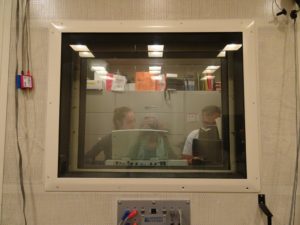
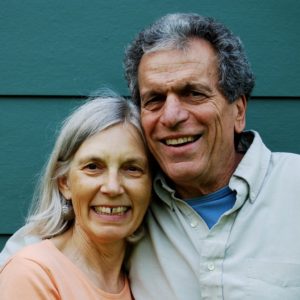

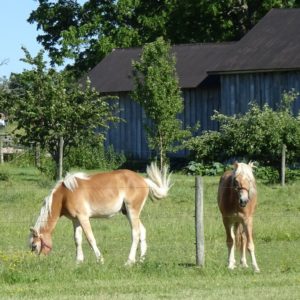
Dear Elaine, It’s upsetting to read of your ongoing hearing problems, and how the echo and lack of word recognition in your right ear is slowly getting worse. How miserable and so frustrating (unless in a perfect space) that must be for you. Stuck between a rock and a hard place indeed! The fact that Dr Orlando isn’t bullshitting you or making you any false promises is a huge relief! How reassuring that you can be honest with each other despite the discouraging results of the test. Nevertheless, for now it’s great to hear that your echo has diminished with your new hearing aid.
Thank you for including Pema Chodron’s meditation. Like you say, it’s that simple! In times of feeling stuck or generally restless I always slip on my walking boots and head out for the Nature Reserve at the end of my street, or the beach which is a five minute walk away in the other direction. Since reading Wendell Berry, I call these instances my desire for “The Peace of Wild Things” and off I go in search of them. If I can’t get out I sit in the garden and watch and listen to all who visit, inhabit and drift in and out. Sending you love and light across the oceans, Deborah.
Yes, it’s upsetting, Deborah. Thanks for caring. I remind myself that it’s the nature of the body to fall apart–although it’s interesting that my falling apart has to do with my ability to communicate and interact. I’m naturally extroverted and that’s had to change. Eventually I’ll qualify for a cochlear implant, but they aren’t great either although I’ll have more consistent sound. I don’t have my new hearing aid yet, but it’s ordered–and the echo diminished but is stronger on high humidity days like today. And on to what sustains. Poetry and Beauty!
I love Wendell Berry’s book (and title). Of course, I can identify with your slipping away to the wild places, but there I was in a parking lot of a large medical complex, two hours from home. All the way home, I noticed beauty–horses, Amish carts, the intensity of the green here unlike so many parched places on this earth, the beauty of Seneca Lake. And then the garden and butterflies when I got home. I’ll be OK, Deborah, but thought it was time to tell the truth about my hearing situation. I’m not the only one with a hidden disability or grief they have to learn to carry. Sending you love and joy.
What a true inspiration you are Elaine! I’m reading Wendell Berry’s book, “The Peace of Wild Things” again because I just love the beauty, truth and richness of his poetry. On the subject of butterflies this afternoon I’ve been watching hundreds of caterpillars nibble away at my kale plants while (hopefully) a new poem is beginning to shape itself around each leaf. Much love, light and laughter always.
I’m laughing, Deborah. Sometimes a choice must be made. I don’t let mice live in my garden and I don’t let cabbage worms (cute little white butterflies be damned) eat my kale. I trap mice sometimes with a Hav-a-Hart live trap, but with a snap trap in the house. They’re sent to their next incarnation with the taste of a raisin. I call that unpleasant work “Mother Kalie’s Extermination Service.” I’ve heard that sprinkling diatomaceous earth powder on cabbage loopers will kill them–or a salt spray or soaking in salt water after the leaves are harvested, but I hand pick and put them in strong salt water for a quick death. I have just a few autumn plants so hand picking works.
My father used to say to me, “You’re a determined little cuss, aren’t you?” I don’t think of you as stubborn, dear Elaine. I think of you as determined. And as much as you open your heart to others who are suffering, please allow yourself room to indulge your own. I’m so sorry for all the losses you’ve experienced in your life ~ but oh, so inspired by your determination to endure and cope with them . . . ♥
Thank you, Marty. I like determined better than stubborn, but quoted my friend. It was said with a smile, noting how willful I am in not giving in to deafness and before that finding my way through grief by actively looking for help. Tonglon practice is about having compassion for myself, too, so I’ll keep practicing. It’s a great exercise for all of us, no matter what our spiritual beliefs.
I was struck that you didn’t mention the thing I’d miss so much if I lost my hearing — music. But then I thought of Beethoven. He was pretty determined cuss too, wasn’t he. You are like a modern Beethoven, Elaine. I admire your courage.
Ann Marie, I’ve written a number of blogs about hearing loss and earlier ones included the loss of music. Music was gone a long time ago–even while Vic was alive, so that’s over 10 years since I’ve enjoyed music although it wasn’t painful as it is now. One of the hardest things while grieving was not being able to listen to music for comfort and uplift, although I often had music in my dreams. “Let It Be” accompanied by a full orchestra was one memorable dream with a strong message. “In times of trouble, Mother Mary comes to me, speaking words of wisdom, Let It Be. And in my hour of darkness, she is always right in front of me, Speaking words of wisdom, Let It Be.”
Elaine, as always a beautiful heartfelt post. I feel your pain and I’m inspired by you both at the same time. ❤️
Thank you, Sally. I thought it was time to communicate how disheartening it is to become deaf. This piece spilled out after the audiology appointment. I was clueless about hearing loss as a younger woman. I now realize that many older people who seem a bit out of it mentally are actually not hearing the conversation and faking it. Like aging itself, we’ve all learned to hide our infirmities as much as possible. I don’t want to fake it. I’m glad you and other friends know. Love to you and Sunny.
Beautiful, as always, Elaine. I’m so thankful to call you my friend. Your wisdom and open heart sustain me, as does our practice. Wishing you much beauty and love.
Thank you, Ava, for sharing your heart and the beauty that surrounds you because you choose to see the beauty of this world. Someday we’ll meet. Will you cook one of your delights for me?
Oh Elaine, I feel your frustration. And I’m in awe of the tonglen practice. Your sentence, “My heart opens to myself and my struggling ears” was the one that got me though. How important that is. AND, I’m so interested in your workshop in Columbus. I’m hoping that might be near the date I’m driving between Akron and Cincinnati on my bi-annual Gramma Janet road tour. Maybe we’ll Message?
Thank you, Janet. Sooner or later, usually sooner, we need to learn to extend a little compassion to ourselves. It’s not easy for me or most of us. Thanks for wanting to come to the workshop. As of yesterday, it’s likely we’ll reschedule for spring 2019, but we’re working on details. I was ready for October, but the three sponsoring organizations are finding surprising enthusiasm for a workshop about Aging, Loss, and Grief in the wider community. They would prefer more time to promote and include media. I warn them I may have no hearing by spring (or there may be no change), but have plenty of ways to get around that by writing everything up (it always helps to clarify first by writing, so that’s what I do) and creating simple small group exercises with volunteer moderators so people can share writing exercises and stories. We’ll make it work. I’ll announce the dates as soon as I know them, but I imagine in April 2019.
You are an inspiration, Elaine!
Thank you, Lynne. When we tell each other what we’re up against, we’re all inspirations. When I think of you, I think of intense color.
Oh, my word, Elaine! Your vivid description of this particular suffering is affecting and makes tears “squirm” down my cheeks too. But you have mapped out alternative paths and will never be without a way to express your thoughts and feelings.
Your doctor and sidekick are precious: ” . . . his shoulders hunched with the weight of my grief.” My doctor, now in his eighties, often gives me a hug after my check-up. It’s not professional, but I have known him for more than 35 years.
I’m so happy to hear that the echo diminished with the iPhone that your son helped purchase. Always a bright side . . . !
Marian, my life-time internist who took care of my family was a personal friend and guided Vic and me through Vic’s illness and death. He retired last year. He gave plenty of hugs. I miss him, although he’s always open to talking about our infirmities. While still in practice, he patiently helped me try various medications until we found what would ease vertigo, so I’m forever grateful. Now I go to the doctors he recommended. Yes, just the iPhone helped with phone calls and the echo diminished on its own, especially on less humid days. I don’t get the new hearing aid until September (it takes a time to make the specialized things I need, plus it takes more time to get an appointment with my heavily booked audiology), but it will come and I hope it helps. Meanwhile, I’m learning to use this new phone technology, because the new hearing aid will depend on the iPhone for settings and microphones and much more. I’m not naturally a techy person (“Hey, Vic, can you tell me how to do this?” was my old refrain), but I’m learning.
When we are suffering, it is easy to put our turmoil above the suffering of others. By including the suffering of others in your own, Elaine, is to affirm the community of compassion.
Thank you, Mark. I’m glad to say I never felt I was the one who suffered the most. Many teachers helped me keep that straight, including Nature. I met my first meditation/philosophy teacher in 1967 when I was 22. He called this “The Planet of Sorrow.” I call it “The Planet of Joy and Sorrow.” He found joy in music, but that’s not available to me now. I have Nature, butterflies, and so much more.
Thanks, Dear Elaine,
This writing piece is filled with so much helpful Heart Medicine….
Loving Good Wishes,
Michael
M.Cooper
Thank you, Michael. And thank you for the loving heart medicine you share so freely.
Next time, call me on your way home.
From one who loves rocks. I say pick a good one. Since you’re up against it and a hard place. Maybe one of Kali’s black stones? Love the pic.
So sucks you lost hearing in one ear entirely. I am so sorry friend.
I can see your teary eyes. I am feeling them, and your heart, and your missing Vic, and your resourceful spiritual tool box of helpful actions, like Tonglen. A perfect opportunity, smart.
You are so practical in such a beauty-filled way. Thank you for sharing the small moments of wisdom that enlighten your life. They enlighten mine as well.
We are all rooting for you with big expressive mouths to read.
As for what we do when in a situation with no fix? I remember the word for world in Tibetan means disintegrating basis or momentary basis. It’s the nature of things, as you know. Also I think about how I have to give up my body in the end… so anything I have to let go of before that is getting me prepared.
Thank you, Sweet Friend Lauren who has always been there. Next time I’ll call you from the parking lot, but there is also a lesson in handling this on my own with the practical inner masculine who lives within. I’ll look for a Kali rock, but I’m reminded of the onyx or agate Marion Woodman gave me a many years ago. It’s on my altar.
I will struggle to keep hearing going so I can interact and not be a complete hermit, but I also see this as a prolonged practice in learning to give up what I love in life, including Vic (first lesson), my land (not yet), my friends (not most of them, but some), my body in the end. In the flow of time, it’s all taken. With a Buddhist perspective, there’s nothing surprising about that. It’s our silly egos that feels surprised.
Oh Elaine – what can I say. Thank you for opening your heart to us. You remind me very clearly and beautifully poetically that the rock and the hard place comes to most of us at some stage. It’s not even a question of choice – it’s how it is and we have to endure it and find the beauty in this life where we do and can. As you know I have no hearing at all in my left ear and wear a hearing aid in my right to enhance hearing. I don’t suffer from Meniere’s but I know of it. It is of some curious interest to me (and others who wonder why I can’t be ‘fixed’ that I am married to an ent specialist and I have the hearing loss. But my fancy hearing aid does help if and when in conversation.
Good on the iphone and its capabilities in helping. You have the wonderful facility of the written word which is strongly communicative as well as those who are with you and know of the difficulty. You have a compassionate heart – and it’s important to extend that compassion to yourself. Roll on September and the trial of a new hearing aid. It’s worthwhile trying out many until you find the one that best suits your needs.
Susan, I know you know. Without a hearing aid in my R ear, I hear zero, so I’m grateful for my 5 year old models and look forward to the update next month. Sometimes the shrugged shoulders come from your husband who, as an ENT, knows how hard this is for you. My audiologist ordered an Oticon which is what I’ve used for years. They’re on the high end side of hearing aids because I always wanted the most help I could get. The very top of the Oticon line focuses on communicating between the two ears and I have that sort now, only older models. The new one I’ll get doesn’t have that feature since I’ll only have one hearing aid. Most adjustments and settings, including volume, will now be done on the iPhone. This amazes me. My cell phone will be a constant helpful companion. Good thing I’m figuring mine out ahead of time.
Thank you for this, Elaine. I want to give you the hug that your audiologist didn’t/couldn’t. I once read, in a book by Matthew Fox, about how the Grand Canyon has nothing on human grief and suffering, as it carves into our inner landscape a space deep enough, compassionate enough to hold the world in. I thought of that metaphor as I read how you opened your heart to the suffering in your world, including your own. I am learning a lot by the way you hold yourself tenderly.
Thank you, Tamara. My family is visiting this weekend, so I’m collecting some needed hugs and sweetness. I love the metaphor of the canyon. I did a painting (amateur, but mine) of a dream I had about a canyon. The painting evolved away from the dream as I painted myself walking a steep trail back toward light and glancing back at Vic who stayed, deep in the canyon nestled in the roots of trees. That painting is still on the bulletin board in my office so I can see it often and remember. Seems like the training for me is in learning to traverse both worlds and hold them both without letting one obliterate the other. A few Goddesses have those powers to traverse the worlds–Persephone, Hecate, Inanna, and more. I’ve learned a lot from those ancient stories.
I slowly learn to hold myself tenderly. It doesn’t do much good to be hard on myself about body things I can’t control–but that doesn’t stop the inner judge from popping up to offer a negative opinion. I’m learning not to pay much attention to that voice. Slowly.
I’m so sorry Elaine. You are entitled to feel scared or sad or angry for that matter. You don’t have to short change your worry or grief feeling your hardship isn’t as bad as a fire or children at borders because it’s your own personal grief. Sometimes you need to spend your worry on yourself. And it’s times of despair that naturally we want to turn to the one who was always there for us when we needed a hug or words of encouragement. I pray the new hearing aid will provide some sort of a miracle for you. <3
Thank you for your sweetness, Debby. In facing my grief head on, I learn something about what it is to be human. It’s been a spiritual exercise since Vic died–and I also hope the new hearing aid will help. It comes in about a month, not because the hearing aid takes that long to mold but because it takes that long to get an appointment with my popular audiologist. We’ve made a second appointment a month after that to decide if it’s helping or not.
Well I’m sending you light and positive vibes so do let us know how well it works out. <3
Thank you. May it be so. I don’t get the new hearing aid until mid September. Will it help? I have no idea. I hope at least a little.
Elaine, I can feel your heartache and frustration. Recently my mother, who has been suffering hearing loss and hearing aids that don’t help her enough, was stuck in a hospital in Florida. I phoned her several times but she could not understand me, had a difficult time figuring out it was me calling her. It was so frustrating for us both. To cover up the awkwardness, she kept talking on and on, over my questions, not being able to hear me trying to respond to her, not leaving me a second to say anything. She wrapped up the call when she ran out of what to talk about, announcing, ” nothing else is new, thanks for calling, bye-bye.” It makes me sad how much more one really loses when you lose your hearing. And when I cannot be there with th my mother, it is almost like I’ve lost her.
Oh, Robin. I feel for you and your mom. Since I’m likely younger than she, I’ve had access and been able to learn technological skills that help me. Some days, I ask friends or family to interact with me by text or email only because I need a break from anything other than a short business-style conversation on the phone such as making an appointment. When I don’t want to not hear the other person, I don’t pretend I can. I notice so many elderly (elderly is always people older than I am) won’t own their deafness, so it’s double isolation. In social situations, I’m disruptive by slowing everyone done and moving around the room so I can read lips. People are amazingly tolerant of this when I ask. They want to help. Sitting around a dining room table so I can read lips easily helps a lot. I hope your mom has picked up this skill–by necessity since it’s rare for anyone to offer a class. We learn by doing what all humans do along with listening.
Tired from working with addicts who are in so much pain and grief they cannot stand it. In Albany a new VA program where the PTSD patients learn yoga and MEDITATION. neuroplasticity they call it.Gives hope to people who have been driven to suicide.Iam in awe of these new techniques.And as for you,I just really love you.
Addicts suffer in a way I can’t quite understand, but tonglen practice is perfect for holding the suffering of someone we love even as every attempt is made to improve or change their situation. I didn’t know the program was as close as Albany, but I’m glad to hear it is. May all be well for the ones you love–including me. Don’t forget to include yourself in those loving thoughts. Thanks for your kind supportive words.
Thanks, Elaine, for sharing your struggles with hearing loss so honestly and open-heartedly. I just started reading The Five Invitations by Frank Ostaseski, and his wisdom is resonating with yours–particularly your comment, “I also see this as a prolonged practice in learning to give up what I love in life… In the flow of time, it’s all taken.” Even though I’ve never met you and only discovered your writing recently, I carry your stories with me, and they bring spaciousness and solace during difficult times. May poety, beauty, and butterflies abound!
Thanks to you, Anne, for reading and staying in touch. Makes me happy to think of you carrying my stories nestled next to all of your own. I’m grateful for the beauty surrounding me. As I chase butterflies with my camera in this green wet weather, I wonder what I find to photograph in the winter. Somehow there is always beauty around when I open my eyes and look for it.
Having been through these same audiological losses since age 5, I “get it.” Each drop in hearing was accompanied by periods of grief, although at those times, I wouldn’t have thought to call it grief. It’s interesting how that grief measures up against the current grief I’m wading through. I lost my partner 18 months ago, after 18 years together. He was like my buffer against the world, and my ears at night if something was wrong. Now I am alone and wondering what I will do, and I know I am hardly the first to do this, nor will I be the last. In fact I just recently had an issue with the processor on my dominant ear and had to deal with requesting assistance from the company, and then be forced to sit tight, with only my weaker ear to depend on until the replacement processor arrived. I desperately wanted to talk to him and be comforted, and of course, I could not. I so understand you in this. 🙁
Not long ago, in struggling to reverse the tide of isolation and bitterness that can overwhelm me, I ran across your essay “When Gratitude Holds Hands with Grief” over on gratefulness.org. I have tried to think of what I am grateful for in this hungry-ghost existence I am faced with… there are many things. I will try the tonglen exercises as well. Thank you.
Joe, I’m sorry you’re going through such a hard time. Yes, you get how hearing loss magnifies the isolation of losing a partner. The new hearing aid for my one somewhat correctable ear helps enough to be worth the cost, but I’m still severely deaf. The joy of hearing is mostly gone, but I’m grateful for the night sounds of tree frogs and crickets or the day songs of birds. I stand on my front porch and listen on warm nights, thrilled by simple repetitive sounds.
I’m glad for all the help you received from your partner. I had less severe hearing loss when my husband was alive, so he didn’t have to help much except by listening to music on headphones and missing out on concerts. He would have done whatever I needed. I can imagine how wonderful it was to have a partner and buffer in the auditory world–like visiting a friend in a foreign country who speaks English and the local language and can translate for you. I hear nothing at night when hearing aids are out, but my fire alarm is near the bed and that’s loud enough to get through even when I’m not wearing hearing aids. I also have my dog who is a wonderful companion. I understand the desperation of wanting to talk to your partner. I keep talking and feel heard. I don’t know where he is and let that be a mystery, but know he is right here in my heart where I feel that longing, grief, and love. (I included a poem at the end of this to address this issue.)
Tonglen helps me, especially “tonglen on the spot” which is Pema Chodron’s way of making tonglen an informal practice we can do when we see suffering–and, of course, it’s everywhere when we begin noticing. Tonglen brings me back to gratitude and opens the constriction and self-protection. Another helpful practice is being outside in any weather and searching for beauty and signs of the cycles of life. Seeing the old plants going to seed in preparation for spring brings me hope. And, finally, to tell people the complete truth about how much I can hear them and when I can with friends, on planes, anywhere I might be. Some environments are impossible, but I often find help.
I find “ghost-hunger” (a great term) a chance to touch in on love and break through my sense of isolation. I talk about turning toward grief in my TEDx talk if you haven’t watched that. The link is in the right column on my website. I’ll end by saying that at 18 months, I was still in the depths of grief. I thought it would never lighten, but more than 2 years out (and it varies for everyone), I felt an inner shift and uplift, a sense that life could bring joy again. I hope you find an opening soon. I’ll leave you with a favorite Rumi poem called “The Window.”
Your body is away from me
but there is a window open
from my heart to yours.
From this window, like the moon
I keep sending news secretly.
– Rumi
Oh, I had to step away and cry for a bit. That is a great poem. I’m sure I saw it once already, but now it has new meaning. I’ll treasure it. Thank you. And I will check out the TEDx talk as well. Interestingly, when the processor crapped out and I was on the phone requesting the replacement, the caption telephone I have (which transcribes voice to text in real time with a human operator to correct the mistakes the computer makes) did something unexpected. The company rep addressed me by my name at one point, but the captions replaced my name with his name. And then, minutes thereafter, I got a spam email and the sender was his first and last name. Of course I didn’t open the email, but I took it to mean he was sending reassurance from beyond. And it all worked out in the end. And then your poem came to me here. 🙂 So that’s all the evidence I need.
I hope the audiologist can match you with what you need. BTW they do make flashing/strobe alarms that you can place in your bedroom, connected to a receiver that detects the tones a fire alarm makes or a carbon monoxide detector makes. I have one in the basement so if something happens at night, it should wake me.
I have a caption phone, too, but haven’t found it very helpful. Maybe I need to practice using it more–plus it’s connected to my house phone which I rarely use rather than my iPhone which is a necessary part of my new hearing aid. All function changes in volume, changing to microphone, etc. are on an iPhone app. Bottom line: I love text messaging and email. My iPhone transcribes voice mail messages–a big help. I’ve never had a human voice break through with the caption phone translating (poorly) what the caller is saying. That would wake me up. I’m glad your hearing equipment worked out in the end. I have a flashing doorbell and enough hearing in one ear to hear a blaring smoke detector. I’ve had others help me test the smoke detector to make sure that’s true. My new hearing aid is helping enough so I can limp along for a while. Eventually, I assume, I’ll be a cochlear implant patient.
Every time I see the moon, I think of Rumi’s poem and send a message. Stepping away to weep is always a good idea–at least for me. Those tears release my softness and love. I hope each thing works out. I had two workmen here this morning at the same time. Everything, small things in this case, breaks at once–all things Vic used to fix.
Somehow I found your blog and website and was astonished to find this particular entry. I too have one-sided hearing loss, tinnitus in that ear also, and was astonished to learn at a hearing exam that the loss cannot be helped by hearing aids. Devastating when something can’t be corrected. I too plan to just test one to see if there is any help at all. I am in Cols and see you’ll be back here in 2019, so I will plan to attend and follow along on your blog till then. I have been given a lot of experience in grief and loss in this life, certainly not anything I hoped for! I do my best to assimilate it and represent as I call it, as long as I am here! And probably experienced grief over this hearing thing as well.
Janice, hearing is a wild ride when it goes haywire. Vision can be the same if a patient has macular degeneration or glaucoma. I began by losing hearing on the R side. Now that’s the good ear and the L ear is totally deaf after a fast crash about 5 years ago followed by slower loss of what little hearing remained. I still have tinnitus in the deaf ear, although it’s hard to tell where it originates. Hearing aids were wonderful for me and they still are. They make it possible to converse with someone if the background noise is subdued. They make it possible to enjoy and participate in my writing class, mythology class, and book group and listen to bird songs and crickets. They make it possible to give a workshop (I’m giving one a few hours away in a few days). It’s challenging, but I put things together so it works. In Columbus, I will be as open as I am in writing–and everyone will help. There will be good microphones so I can hear questions or comments. I don’t have trouble speaking, but I like to interact.
Since writing this blog, I’m in the queue for a cochlear implant in the completely deaf ear so that may happen before I come to Columbus. There are hurdles before the surgery–lots of testing which begins in a few weeks and then insurance companies to deal with and FDA guidelines. Fortunately, there’s no risk to my remaining hearing because the implant will be in the completely deaf ear. If it doesn’t work well or takes time to adjust, I still have my R ear with a hearing aid and the hearing I have now. I don’t like anything about hearing loss, but I keep adjusting as I have to many other things in this life. We all have to do that.
I’m not shy about hearing loss, maybe because it’s been happening for 20 years. I need others to help me read their lips by looking at me when they speak. So far, no one minds. I want to communicate, so sometimes I need a word or sentence repeated. So many people with hearing loss try to hide it and give up trying. They seem like they’re losing their thinking function when they aren’t. They’re just hiding that they can’t hear. Yes, I grieve over loss of hearing. It added to the grief over my husband’s death, although the worst of the hearing loss didn’t begin until 5 years later. As I age, I know there will be more to lose besides hearing. And there is still so much to love and enjoy about life. I look forward to meeting you in Columbus. Please introduce yourself and remind me of our interaction on my blog. Then I’ll be clear who you are.